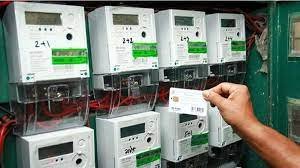The future of electricity usage may be closer than we think, with the advent of smart meters that not only measure usage, but also offer personalized advice on how to save money and energy. Imagine having an advisor that can inform you about your electricity use during different times of the day, months, and seasons, and even notify you about changes in power tariffs so that you can plan your activities during low-tariff periods. This is the kind of technology that is already available in India, where more than 5.5 million smart meters have been installed and over 100 million more have been sanctioned. The target is to replace 250 million conventional electric meters with prepaid smart meters by 2025-26.
One of the biggest benefits of smart meters is that they allow consumers to make informed decisions about their electricity usage. By providing real-time data on electricity consumption, smart meters empower consumers to take control of their energy usage and make changes to reduce their bills. This can be especially useful during peak hours, when energy prices are typically higher. Smart meters can also help identify which appliances are using more electricity than they should and suggest more efficient options to replace them with.
In addition to offering personalized advice to consumers, smart meters can also enable the trading of solar power directly with peers. This means that households that generate excess solar power can sell it to others in their community, reducing their reliance on traditional energy sources and helping to build a more sustainable energy system.
The implementation of smart meters is being supported by the Indian government through a results-linked grant-cum-financing program. The aim is to help power distribution companies become financially sound and efficient, so that they can deliver better services to consumers. However, there are also on-ground challenges that need to be addressed in order to ensure the success of the program.
One of the biggest challenges is ensuring that smart meters are accessible and affordable to all consumers, including those who live in rural areas or are from low-income households. To address this issue, the Indian government has launched a scheme to provide free smart meters to consumers who belong to the poorest sections of society.
Another challenge is ensuring that the data generated by smart meters is secure and protected. Smart meters collect a lot of personal information, and it is important to ensure that this data is not misused or exploited. The Indian government has put in place a number of measures to address this issue, including the development of a national cybersecurity strategy and the establishment of a national cybersecurity coordinator.
Overall, the implementation of smart meters in India has the potential to revolutionize the way that consumers use and interact with electricity. By providing personalized advice on electricity usage and enabling the trading of solar power, smart meters can help create a more sustainable and efficient energy system. However, there are also challenges that need to be addressed in order to ensure the success of the program, including ensuring accessibility and affordability for all consumers and ensuring the security of data generated by smart meters.


